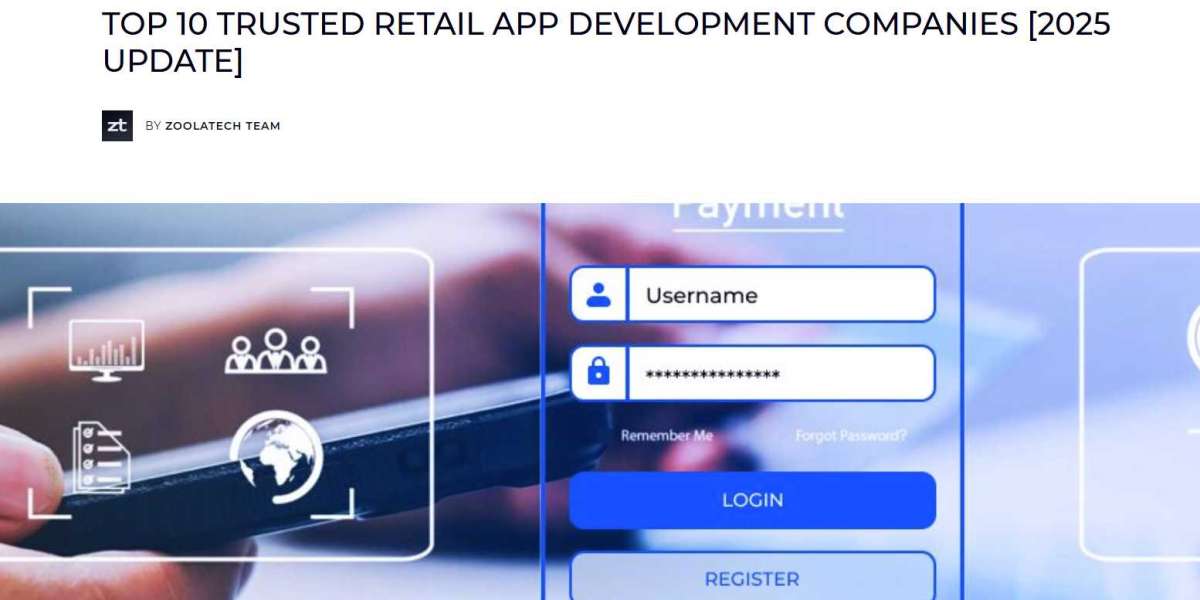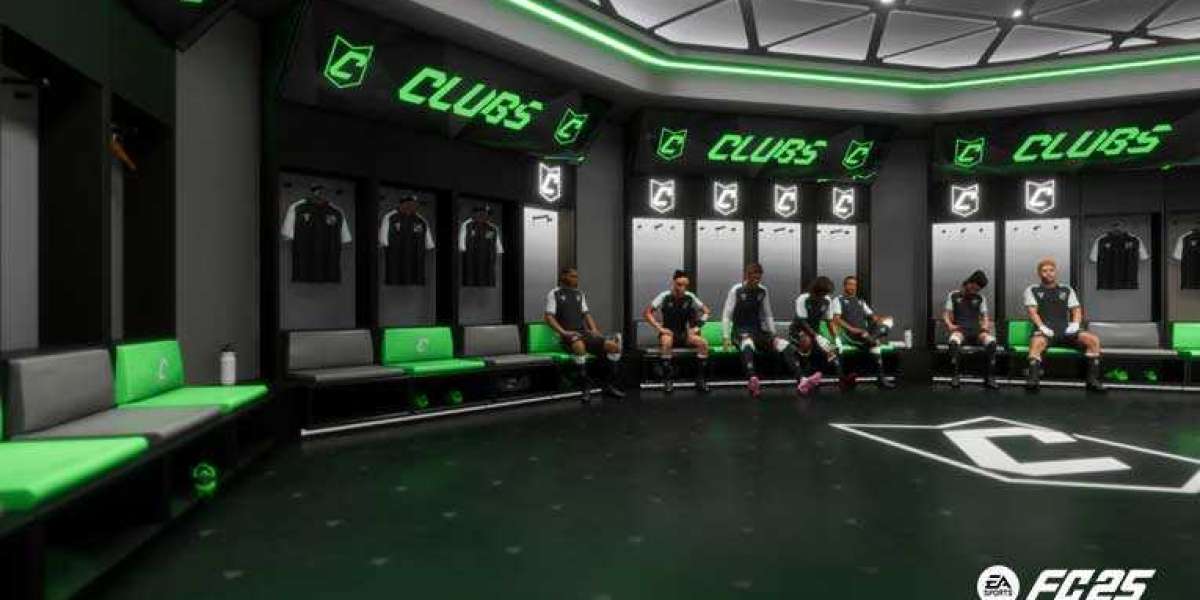In today’s competitive retail landscape, shoppers expect more than just shelves filled with products. They want experiences: inspiring store designs, seamless customer journeys, and brands that feel consistent across every location and channel. Behind many of these successful retail environments stand specialized partners known as retail development companies.
These companies help brands and landlords turn ideas into profitable, scalable, and memorable retail spaces. Whether it’s rolling out a new store concept, optimizing an existing network, or transforming a single flagship into a destination, retail development companies are often the hidden force making it all work.
What Are Retail Development Companies?
Retail development companies are specialized firms that plan, design, manage, and often oversee the build or rollout of retail spaces. They work at the intersection of strategy, design, operations, and construction, helping brands and property owners bring commercial concepts to life.
They typically collaborate with:
Retail brands (fashion, electronics, beauty, FB, home goods, etc.)
Shopping mall owners and landlords
Franchise networks and chains
Direct-to-consumer (DTC) brands entering physical retail
The main goal of retail development companies is to create physical environments that drive sales, deepen brand loyalty, and deliver a consistent, high-quality experience—whether it’s a single boutique or a global chain with hundreds of locations.
Why Retail Development Matters More Than Ever
The role of retail development has evolved dramatically. It is no longer just about finding a unit and building some shelves. Several trends have made professional retail development support critical:
1. Rising Customer Expectations
Shoppers compare every visit with the best experiences they’ve ever had—online and offline. That means stores must be:
Easy to navigate
Visually engaging
Convenient and fast
Integrated with online services (pick up in store, online returns, etc.)
Retail development companies understand these expectations and design spaces that feel intuitive and enjoyable.
2. Omnichannel Retail Reality
Physical retail is now part of a larger ecosystem that includes e-commerce, apps, and social media. Stores are:
Showrooms for touch-and-feel experiences
Micro-fulfillment hubs for click-and-collect
Branding tools that communicate values and lifestyle
Retail development companies help brands align their store footprint with their broader omnichannel strategy, making sure physical locations support online growth and vice versa.
3. Cost and Risk Management
Opening or remodeling stores is expensive and risky. Mistakes in location, layout, or construction can be very costly. Working with experienced retail development companies helps brands:
Avoid costly design errors
Optimize space to improve revenue per square meter/foot
Standardize processes to roll out stores faster and more efficiently
Core Services Offered by Retail Development Companies
Although each firm has its own focus and specialization, most retail development companies offer a set of core services that cover the full journey from idea to opening.
1. Market and Location Analysis
Before signing a lease or buying property, it’s critical to know whether the location fits the brand’s strategy. Retail development companies can support with:
Demographic and footfall analysis
Competitor mapping in the area
Catchment area and customer profile studies
Sales potential and performance forecasting
This data-driven approach reduces guesswork and helps brands choose locations with the highest likelihood of success.
2. Concept and Store Design
Store design is about much more than aesthetics. It’s about directing customer movement, encouraging product discovery, and supporting staff efficiency. Retail development companies often:
Develop or adapt store concepts and visual identities
Create zoning and layout plans (entrance, product areas, POS, back-of-house)
Design furniture, fixtures, displays, and signage
Integrate technology (screens, self-checkouts, digital price tags)
Ensure compliance with accessibility and safety standards
Good design ensures that every square meter has a clear role in the customer journey.
3. Project Management and Rollout
From the first sketch to opening day, retail projects involve dozens of stakeholders: landlords, architects, engineers, construction teams, signage suppliers, IT providers, and more. Retail development companies coordinate:
Project scheduling and critical path planning
Communication between all parties involved
Budget monitoring and cost control
Risk management and contingency planning
They serve as a central point of contact, making sure plans are turned into reality on time and on budget.
4. Construction and Fit-Out Coordination
While some retail development companies offer in-house construction, others manage external contractors. In both cases, they make sure that:
Work on-site follows the approved design and standards
Materials and finishes meet brand specifications
Installations (lighting, HVAC, IT, security, etc.) are correctly executed
Snagging and quality checks are performed before handover
The result is a finished store that reflects the original concept and is ready to operate from day one.
5. Brand Standards and Documentation
For chains and franchises, standardization is essential. Retail development companies create and maintain:
Brand guideline manuals for store design, materials, and fixtures
Technical documentation (drawings, layouts, installation instructions)
Rollout kits that make it easier to replicate the concept in new locations
This ensures consistency across markets and accelerates expansion.
How Retail Development Companies Work With Brands
The collaboration model can vary, but most partnerships follow a similar high-level flow.
Step 1: Discovery and Strategy Alignment
First, the company learns about the brand:
Positioning and target customers
Product range and price levels
Existing store network and performance
Expansion goals (markets, formats, timelines, budgets)
Based on this, retail development companies propose a strategy: which formats to prioritize, what concepts to develop, and how to structure the rollout.
Step 2: Concept Development and Validation
Next, the team may refine or redesign the store concept. This can involve:
Customer journey mapping
Moodboards and 3D visualizations
Pilot store design in a key location
The pilot is often used to validate assumptions: Does the layout work? Are customers spending more time in key zones? Do staff find it easier to operate? Based on feedback and data, the concept is iterated and finalized.
Step 3: Standardization
Once the concept is approved, retail development companies translate it into a clear, repeatable blueprint:
Templates for different store sizes and shapes
Standard fixture and material lists
Clear guidelines for adaptations (e.g., kiosks, corner shops, outlets)
This phase is crucial if the brand plans to open multiple locations or enter new countries.
Step 4: Rollout and Expansion
With standards in place, the focus shifts to execution. Retail development companies may:
Evaluate potential sites and landlords
Adapt the standard concept to each new location
Coordinate local partners and contractors
Oversee construction and opening
Their experience helps brands scale quickly without sacrificing quality or consistency.
Types of Retail Development Companies
Not all retail development companies are the same. Understanding the main types can help brands choose the right partner.
1. Strategy and Consulting-Focused
These firms concentrate on:
Market entry strategies
Network planning (where to open, what format, in what order)
Financial modeling and business cases
They are ideal when a brand is deciding if, where, and how to expand its physical presence.
2. Design-Driven Retail Development Companies
These prioritize the creative and experiential aspects of retail, such as:
Concept design and brand storytelling
Visual merchandising and environmental branding
Customer journey and experiential touchpoints
They are a great fit when a brand wants to refresh outdated stores, create a flagship, or stand out in a crowded category.
3. Turnkey / End-to-End Providers
These retail development companies handle almost everything:
Location analysis
Design and engineering
Permitting and approvals
Construction and fit-out
Handover and sometimes even maintenance
Turnkey partners are particularly valuable for fast-growing brands that do not have large internal development teams.
4. Specialized Niches
Some companies focus on specific sectors or formats:
Luxury boutiques and high-end malls
Grocery and convenience stores
Food beverage and quick-service restaurants
Pop-up stores and temporary retail
Choosing a specialist with deep experience in your category can significantly reduce learning curves and mistakes.
Key Benefits of Working With Retail Development Companies
Brand teams sometimes wonder whether they should handle development internally or rely on external experts. Partnering with professional retail development companies brings several advantages:
1. Faster Time-to-Market
An experienced partner has:
Established processes and templates
Existing networks of contractors and suppliers
Familiarity with local regulations and landlord requirements
This shortens the time from idea to opening and allows brands to seize market opportunities quickly.
2. Better Financial Outcomes
By optimizing layout, operations, and location selection, retail development companies can help:
Increase average basket size and conversion rates
Improve revenue per square meter/foot
Reduce build and fit-out costs through standardization and volume
In a low-margin industry, these improvements can make a big difference.
3. Reduced Operational Burden
Managing development projects is complex and time-consuming. External partners:
Handle coordination with multiple stakeholders
Track progress and manage issues
Provide clear reporting and documentation
This frees internal teams to focus on core activities such as merchandising, marketing, and customer experience.
4. Consistency Across Markets
Maintaining a consistent brand image is crucial, especially in international expansion. Retail development companies help ensure that:
Brand standards are respected everywhere
Local adaptations remain on-brand
Customers recognize the brand instantly, no matter the location
How to Choose the Right Retail Development Company
Selecting a partner is a strategic decision. Here are key criteria to consider:
1. Relevant Experience
Look for retail development companies that have:
Experience in your product category or a similar one
Projects in the countries or regions you’re targeting
A portfolio that matches your aesthetic and ambition
Case studies and past projects can reveal how they handle complexity and scale.
2. Service Scope and Flexibility
Clarify what you need:
Do you want a full turnkey solution or support in specific areas (design only, project management only)?
Can the company integrate with your internal teams and processes?
Are they flexible enough to adapt to changing plans or market conditions?
A good partner will be able to tailor their support to your situation.
3. Understanding of Omnichannel Retail
Modern retail is not just about the store itself. Evaluate whether the company:
Understands how physical stores support online sales
Can integrate services like click-and-collect, ship-from-store, and returns
Considers digital touchpoints and data collection in store design
This alignment will help ensure that your stores are not just beautiful, but also strategically powerful.
4. Transparency and Communication
Retail development projects live or die by clear communication. Consider:
How often will you receive updates?
What project management tools will be used?
Who will be your main point of contact?
The best retail development companies act like an extension of your own team, with transparent reporting and proactive problem-solving.
5. Cost Structure and Value
Finally, analyze pricing models:
Fixed fee, percentage of project cost, or hybrid?
Clear breakdown of what is included and excluded?
How are changes and unforeseen issues handled financially?
The goal is to find a partner that offers not just a good price, but strong value over the lifespan of your retail network.
Trends Shaping the Future of Retail Development
The work of retail development companies is constantly evolving. Some key trends to watch:
1. Smaller, More Flexible Formats
With rising rents and changing shopping habits, many brands are moving towards:
Smaller footprint stores
Modular fixtures and layouts
Pop-up and seasonal locations
Retail development companies are designing concepts that can be easily scaled up, scaled down, or relocated.
2. Sustainability and Responsible Design
Customers and regulators increasingly expect sustainable practices. This influences:
Choice of materials and energy-efficient lighting
Reusable or modular fixtures
Waste reduction during construction
Retail development companies are integrating sustainability into both design and execution, helping brands meet their ESG goals.
3. Technology-Enhanced Experiences
From digital signage and smart fitting rooms to mobile POS systems and AR mirrors, technology is becoming standard in modern stores. Development companies are responsible for:
Integrating tech infrastructure from the beginning
Ensuring power, connectivity, and security are properly planned
Aligning tech solutions with brand storytelling
4. Data-Driven Store Design
More brands are using data to optimize store layouts and operations. This includes:
Heatmaps and footfall tracking
Conversion rates by zone
A/B testing different layouts or merchandising strategies
Retail development companies help transform insights into concrete design decisions for future projects and remodels.
Conclusion: Turning Vision Into Reality
Retail development is both an art and a science. It requires creativity to design memorable spaces and rigorous planning to deliver them efficiently and profitably. That is why retail development companies play such a critical role in modern retail.
They help brands:
Choose the right locations
Design engaging, functional store environments
Standardize and scale concepts across markets
Manage complex projects from idea to opening
Continuously optimize based on customer behavior and business performance
For any brand that wants to expand its physical footprint, refresh its stores, or enter new markets, partnering with capable retail development companies is not just a nice-to-have—it is often the difference between a costly experiment and a sustainable, scalable retail success story.








